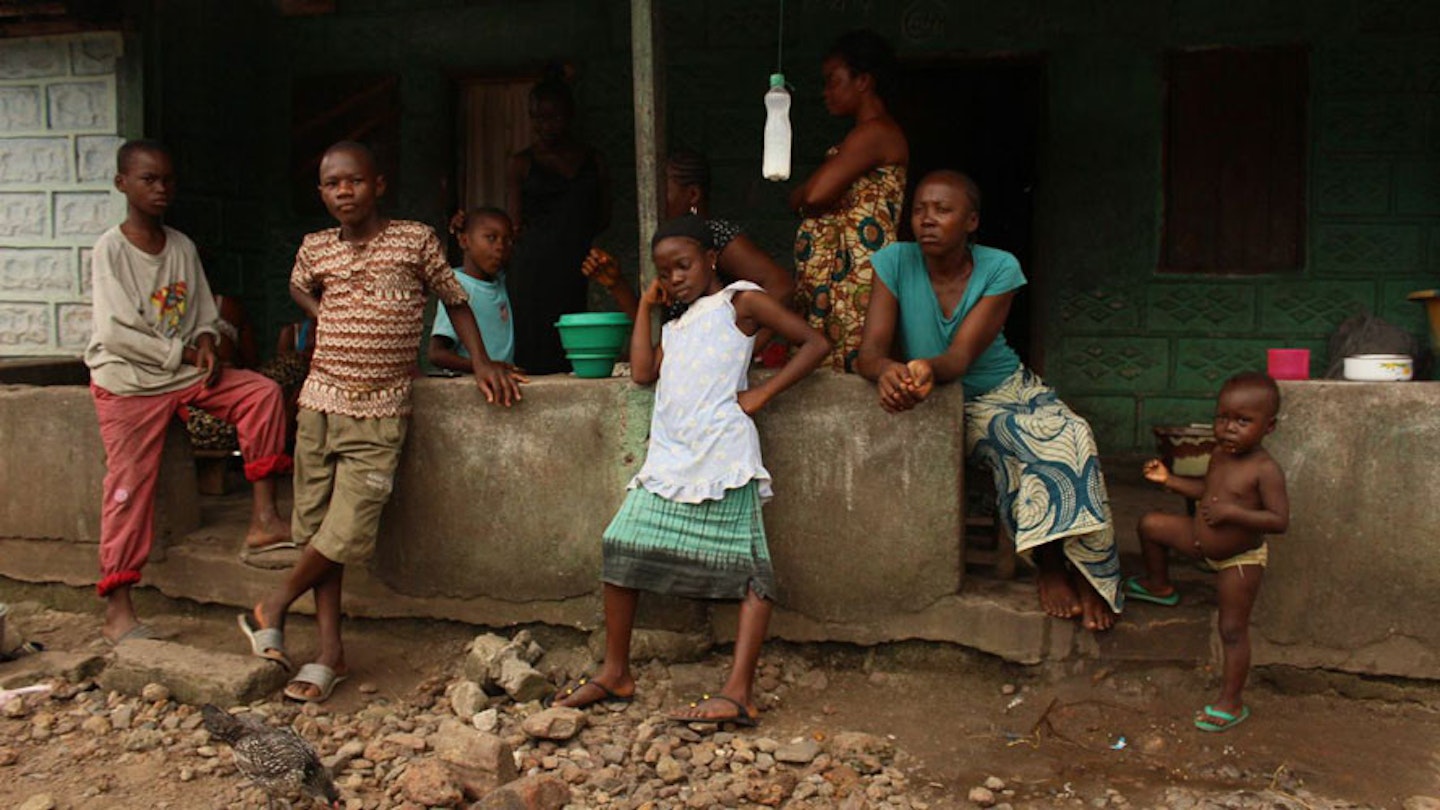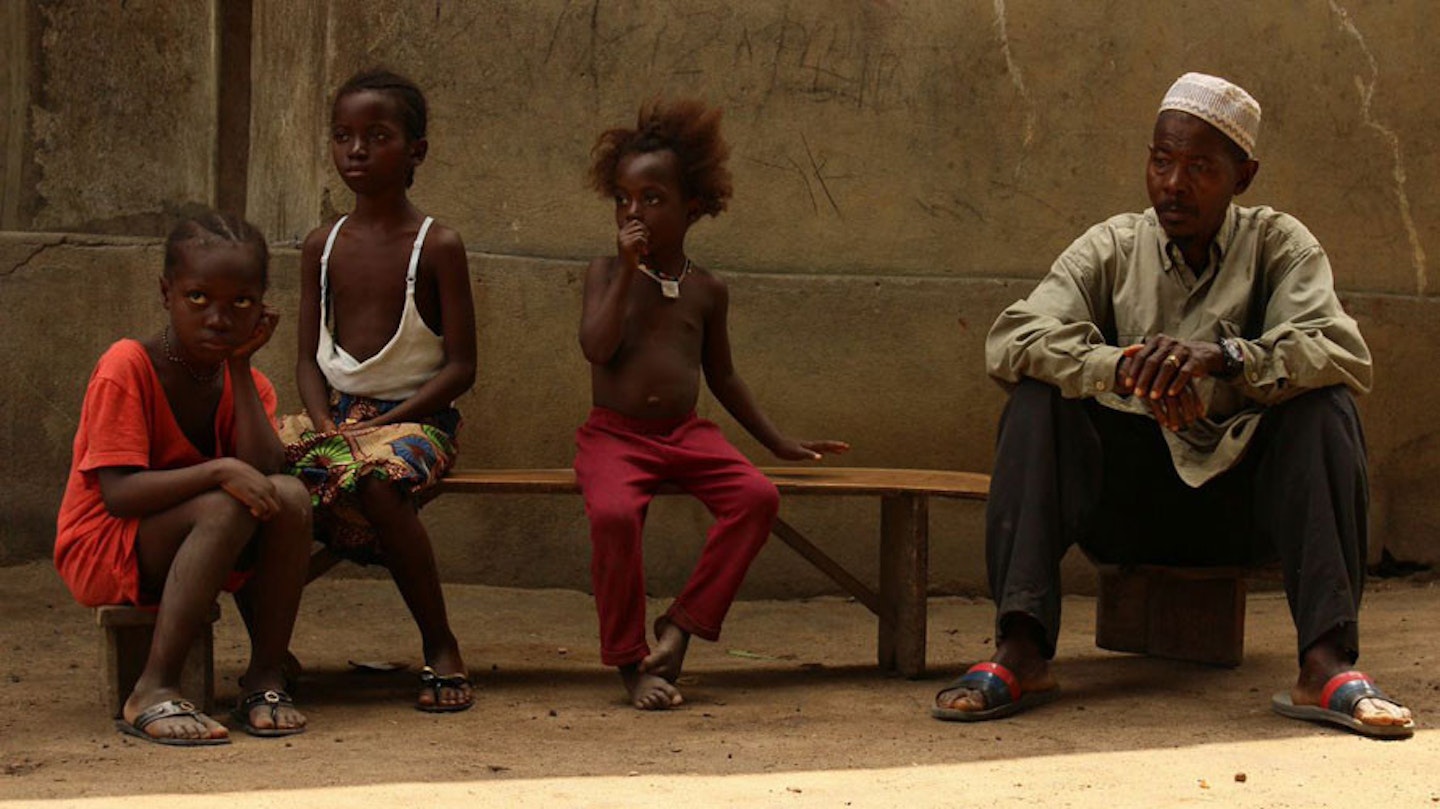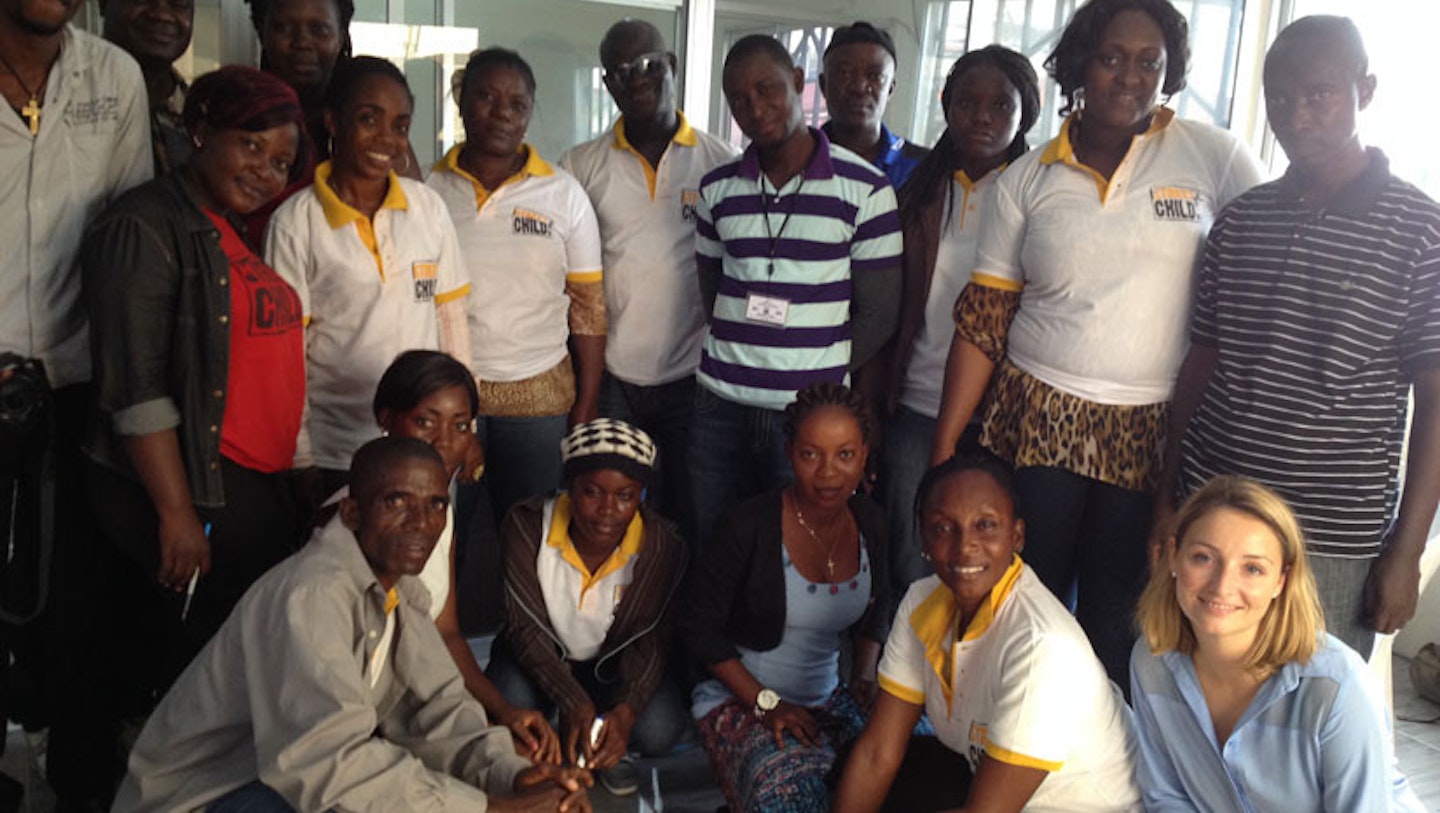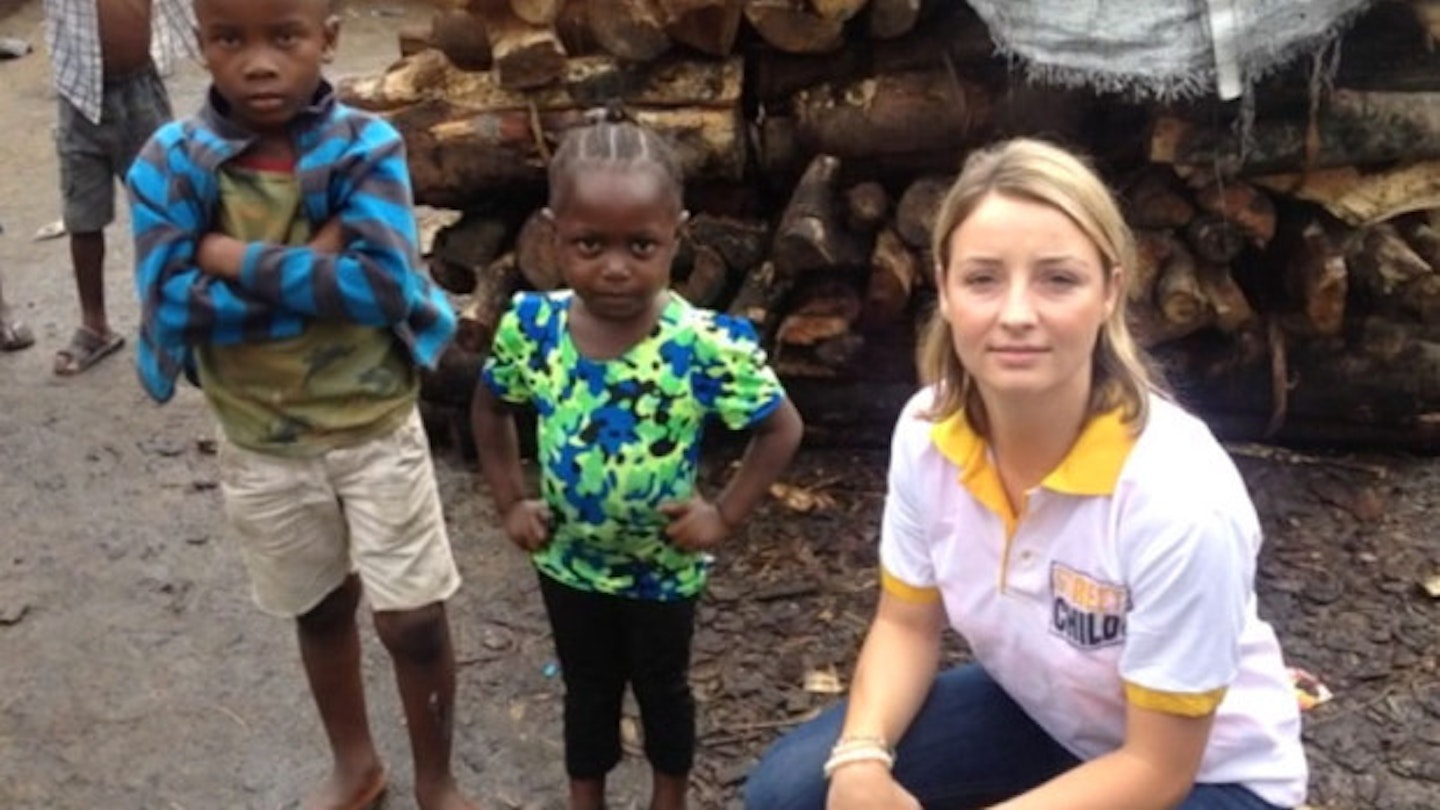Chloe Brett, 28, just got back to the UK after a week in Liberia and Sierra Leone, where she went into slums with Street Child to help rehabilitate orphans whose parents were taken by Ebola. After being back a week, she’s unsurprisingly finding it difficult to assimilate into normal life after seeing some pretty horrific scenes from the under-reported heart of the Ebola crisis.
We spoke with her about why she decided to volunteer, what it’s really like working at such close quarters with one of the most dangerous viruses on the planet, and why it’s a myth that everyone’s wearing those massive protective white suits we’ve been seeing on the telly.

**DB: Why did you decide to go out there? **
CB: I don’t really know why I did it! I have worked on the Liberian programme for 18 months, so I go over there about four or five times a year. I was last over there in July, but this time was different. They kept telling me how bad it was, and how much pressure they were under – and there’s only so much you can help remotely, so I guess I wanted to go and make sure we were doing all we possibly could. I don’t know what I was expecting before I went over there, but it was... it was horrible.
DB: How was the experience** different **to what you were expecting?
CB: It’s hard to explain, but it’s totally different to what I’d imagined. I was expecting Ebola to be everywhere, and for nobody to be functioning normally. But when I got there, everything looked the same – I went to a coffee shop and had a coffee and it was all the same apart from the chlorine buckets that are set outside everywhere.
At first, I thought all the hype was ridiculous, but then you go into the communities, the slums, and see the people who are infected, and you see how it’s destroying a whole generation of children. It’s being reported because everyone’s focusing on the treatment for it and the hospitals. But it feels like it’s being undersold.
DB: What’s the mood like in the cities?
CB: The West African spirit has been knocked out of these communities. It’s not uncommon to see families of 10 or 15 kids from three different families sitting together – there’s a real open door policy – but that’s all changed now. There’s a real fear here, as lots of people don’t understand what’s going on.
I’ve been meeting kids in horrible situations – one group of three girls of 10, 12 and 16 years old in the middle of the West Point [in Monrovia, Liberia] had been sleeping in a tiny house next to their dad’s dead body. They were totally traumatised. Ebola’s not a nice way to die, there’s a lot of bleeding, so what these girls had seen and gone through was unimagineable.

READ MORE: Syrian Refugee Girls’ Pictures Of Forced Marriage Show They’re Anything But OK With It
**DB: You say people don’t know what’s going on – but do they know it’s bad? **
CB: There’s so much misinformation. They know that Ebola is killing people, but they don’t know what it is, or how to prevent passing it on. In rural places, there’s complete denial that it even exists. But in the city it’s everywhere, so you can’t avoid it.
I met a family where the mother was a traditional house worker, as in, she helped deliver babies and did traditional healing with local herbs. She knew what Ebola was, but carried on life as normal – after treating a sick child and she got sick herself, she went to the upstairs room in the house so her children couldn’t come near her. As she got worse and worse, she had to eventually get her eldest daughter to help her take a motorbike taxi to the hospital and both of them ended up dying.
It’s so sad. She needed help, but she didn’t know what to do.
DB: Weren’t you scared being there?
CB: I was definitely apprehensive, but I’m not scared so much as frustrated at the helplessness in the face of something so massive. My parents totally freaked out and my mum cried, but I explained to them about how I wouldn’t be touching anything so I’d be fine. They’re a lot happier now I’m back, though.
Being back, weirdly, is the hardest bit, trying to assimilate into normal life and stop comparing everything to the horror of what’s happening there. The other day I was reading stories to my niece and it’s so far removed from what these people are going through. Street Child is the only charity helping these kids – taking them out of awful situations, persuading their relatives to take them in, and teaching them how to set up their own small business so they’re self sufficient – and the problem is so huge.
But yeah, it was really overwhelming when I saw what was happening. I did cry a lot. And you can’t help thinking about Ebola every time someone sneezes near you.
DB: Did you have to wear the white protective suits?

CB: No that’s a myth, I’ve never worn one! As long as you don’t have any physical contact with the children, or anyone who is infected, then you’re safe. It’s actually quite hard to catch Ebola. There’s a strict protocol – the chlorine buckets are everywhere so you can wash your hands and arms (if you’re not wearing sleeves) and everyone carries hand sanitiser.
Everyone always asks me if I’m afraid of catching it, and of course I am hyper-aware of everything I touch and do – the ‘no physical contact’ rule is surprisingly difficult to follow. Every time you brush passed someone, or reach out to steady yourself or literally anything, it’s on your mind.
**DB: Are you going to go back? **
CB: Yes. Weirdly, I’m looking forward to going back. When you’re there, at least you’re helping...
**You might also be interested in... **
Three Young Women In Afghanistan Have Made A Documentary That You Need To Watch. Now.
Follow Stevie on Twitter: @5tevieM
Picture: Josta Hopps
This article originally appeared on The Debrief.
